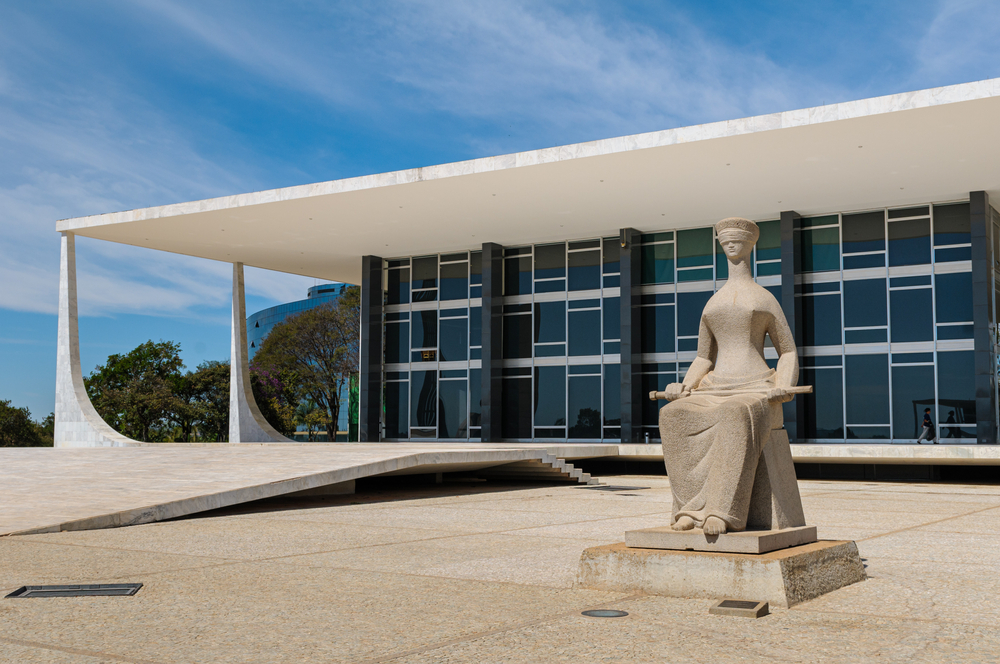Brazil’s justice system has been under scrutiny for years, and the appointment of a new justice minister, Ricardo Lewandowski, marks a significant event in the nation’s legal and political landscape. Lewandowski, an experienced jurist, has previously served as a justice of the Supreme Federal Court, participating in pivotal decisions that have shaped contemporary Brazilian jurisprudence. His legal expertise and familiarity with Brazil’s judicial framework position him as a potentially transformative figure in the Ministry of Justice and Public Security.
Amidst a period of political and social upheaval, Lewandowski’s role takes on heightened importance. The nation expects his tenure to address crucial issues surrounding judicial reforms, public security, and the pressing demands for legal alignments within Lula’s administration. The task ahead for Lewandowski is monumental, as his decisions and policies could greatly impact Brazil’s path to consolidating democratic norms and fortifying the rule of law.
Table of Content
ToggleKey Takeaways
- Ricardo Lewandowski’s appointment as Brazil’s justice minister is a pivotal development in the country’s legal system.
- He brings extensive judicial experience to the Ministry of Justice and Public Security.
- His tenure is expected to influence major judicial reforms and public security strategies.
Profile of Ricardo Lewandowski
Ricardo Lewandowski has established a significant presence in Brazil’s judicial landscape, making a profound impact with his contributions to the legal field and his tenure in various prestigious positions.
Early Life and Education
Ricardo Lewandowski was born into a family that valued education and civic responsibility. He pursued law as his academic and professional calling, laying a strong foundation with a degree in law. Over the years, he further advanced his legal expertise through additional qualifications, which have underpinned his later career in the judiciary.
Career Highlights
Embarking on a legal career that would lead to national recognition, Ricardo Lewandowski made his foray into the judiciary and ascended through the ranks based on merit and commitment. His service culminated in his appointment to Brazil’s Supreme Federal Court, a testament to his legal acumen. During his tenure, he has been involved in key decisions that have shaped the legal landscape of the country. His role in the Supreme Court has not only crowned his professional achievements but also positioned him as a pivotal figure in Brazil’s justice system.
Brazil’s Political Context
The appointment of Ricardo Lewandowski as Brazil’s justice minister comes at a time marked by significant political developments and the essential role of the Justice Ministry in shaping the country’s legal landscape.
Recent Political History
Brazil has experienced profound political shifts in recent years, with the Workers’ Party under Luiz Inácio Lula da Silva, commonly known as Lula, playing a central role. Lula’s presidency, which began in 2003, was transformative, characterized by efforts to reduce poverty and promote social inclusion. After his tenure, the political climate became increasingly volatile, culminating in the impeachment of his successor, Dilma Rousseff. The nation’s political journey took another turn with Jair Bolsonaro winning the presidency in 2018, representing a shift to more conservative policies.
Role of the Justice Minister
In Brazil, the Justice Minister is a pivotal figure in the federal government, influencing legal enforcement and the administration of justice. They oversee the Federal Police, penitentiary system, and legal affairs of the state, and their actions can resonate through the judicial hierarchy and affect public policy. Lewandowski’s appointment underscores the significance of the position in navigating Brazil’s complex judicial and political systems during the Lula administration. The minister’s actions are integral to upholding the integrity of Brazil’s judiciary, which has recently handled high-profile cases involving major political figures and systemic corruption investigations.
The Ministry of Justice and Public Security
Within the Brazilian government, the Ministry of Justice and Public Security holds a pivotal role in maintaining the legal framework, public security, and safeguarding citizens’ rights. It orchestrates a complex system of departments and agencies to fulfill its multifaceted mandate.
Organizational Structure
The Ministry of Justice and Public Security is a broad institution with a hierarchical structure defined to manage both nation-wide legal processes and enforce security protocols. Ricardo Lewandowski oversees the ministry, ensuring that each subdivision operates within its legal capacities to maintain order and enforce the rule of law. Its structure includes various specialized departments, which handle matters ranging from penal corrections to consumer rights.
Functions and Responsibilities
The Ministry is charged with fundamental tasks that shape Brazil’s legal and security landscape. Duties include:
- Managing federal prisons
- Implementing public security measures
- Regulating immigration
- Protecting consumer rights
Additionally, they are responsible for the legal cooperation with other nations, particularly in affairs like extradition, stemmed from international agreements. These efforts underscore Brazil’s commitment to both a stable internal environment and its reputation on the global stage as it upholds international law.
Lula’s Administration
During his term, President Luiz Inácio Lula da Silva, known as Lula, has focused on appointing a diverse cabinet and confronting a myriad of complex political challenges. His administration is marked by strategic appointments and an agenda striving to balance progressive reforms with economic and political stability.
Cabinet Appointments
President Lula has been strategic in his cabinet selections, choosing individuals that align with his vision for the nation’s future. Notably, Flávio Dino stands as a key figure, having been chosen for a pivotal role in Lula’s cabinet due to his legal expertise and previous experience in the government. The appointment of Ricardo Lewandowski as the new justice minister reflects Lula’s focus on reinforcing the rule of law and addressing legal intricacies faced by the administration.
Political Goals and Challenges
The key political goals of Lula’s administration include upholding democratic values, mitigating socio-economic disparities, and improving Brazil’s international reputation. Addressing these objectives amidst Brazil’s complex political landscape presents significant challenges. One of the primary challenges is navigating the tense relations between the government and the judiciary, which came into prominence during his previous terms and continues to be a focal point due to ongoing political disputes and reforms.
The administration must also manage public expectations, as Lula’s return to the presidency has raised hopes for substantive change in various sectors, ranging from environmental policy to economic growth. Balancing these aspirations with practical governance and international pressures is a delicate endeavor for Lula and his cabinet.
Lula’s pragmatic approach is designed to steer Brazil through a transformative period marked by revitalized policies and initiatives aimed at nurturing a just and equitable society.
Judicial Reforms in Brazil
In recent years, Brazil has witnessed a significant shift in its judicial framework, marked by the proposed changes led by figures such as former Brazilian Supreme Court President, Ricardo Lewandowski, and the concurrent public policy implications.
Proposed Changes
The judicial reforms suggested in Brazil aimed at tackling pervasive issues within the judiciary’s structure and its functioning. One notable reform expanded the Supreme Federal Court’s authority through a series of legislative adjustments introduced by Congress and the Senate. These changes were designed to refine the court’s decision-making process, enhance transparency, and strive for more autonomy in the face of political pressures.
Implications for Public Policy
The ripple effects of judicial changes on public policy revolve around the reinforcement of justice within the system, addressing concerns such as the politicization of justice and the balance of power among Brazilian institutions. The role of the Justice Minister has been pivotal in steering this transformation, projecting a justice system that is not only equitable but also resistant to authoritarian tendencies. The intersection between the judiciary and public policy underscores an effort to sustain democratic principles in Brazil’s governance and uphold its constitutional integrity.
Public Security Strategy
Ricardo Lewandowski, Brazil’s new justice minister, has initiated a comprehensive approach to enhance national public security, aligning national directives with state-level collaboration.
National Security Plans
Under Minister Lewandowski’s guidance, Brazil has implemented National Security Plans aimed at tackling diverse challenges within public security. These plans are detailed frameworks highlighting a sequence of actionable steps, targeting the reduction of crime and enhancing police operational capabilities. Notably, these strategies emphasize the importance of incorporating advanced technologies and intelligence to preemptively identify and mitigate security threats.
Collaboration with State Agencies
Collaboration with State Agencies is a critical aspect of Lewandowski’s public security strategy. He has prioritized partnerships with state-level public security apparatuses to ensure the efficient implementation of national policies. This collaboration includes knowledge-sharing initiatives like training programs and resource allocation aligning with the national standards set forth.
The deployment of collaborative measures with local authorities aids in creating a tailored approach to address specific regional security concerns. These joint efforts also support the elevation of overall efficiency within the realm of public security, with Flavio Dino’s past experiences as a reference for integrating different levels of government in the public security sector.
Ricardo Lewandowski’s Appointment
Ricardo Lewandowski’s recent appointment as Brazil’s new justice minister represents a pivotal moment in the country’s judicial and political landscape. This selection has sparked a variety of reactions across the public and political spectrum.
Selection Process
The path to Ricardo Lewandowski’s appointment involved a stringent selection mechanism. Traditionally, the process sees the President of Brazil vetting candidates, followed by a formal announcement at the Alvorada Palace, the presidential residence. Candidates are scrutinized based on their legal expertise, prior judicial experience, and perceived ability to navigate Brazil’s complex political environment. Lewandowski, with a profound legal background and significant experience, including his tenure as a Supreme Court justice, met the stringent criteria for the role.
Public and Political Reactions
Public Reaction: The public response to Ricardo Lewandowski’s appointment varied, with segments expressing both support and concern. Supporters pointed to his extensive judicial record and legal acumen, hoping for a continuation of robust legal oversight. Critics, however, questioned the implications for future government policies and judicial independence.
Political Reaction: Politically, Lewandowski’s appointment as justice minister elicited diverse opinions. Some political figures applauded the move, underlining his expertise and previous performances in Brazil’s legal system. Others scrutinized the alignment with the president’s agenda, pondering how this might influence the exercise of judicial powers. The appointment reignited discussions on the powers and responsibilities of coalition governments in Brazil.
Impact on the Supreme Federal Court
The appointment of Ricardo Lewandowski as Brazil’s new justice minister is poised to have a significant impact on the composition and decision-making processes of the Supreme Federal Court, especially as it relates to vacancies and the future court composition.
Vacancy and Succession
With the retirement of Justice Rosa Weber from the Supreme Federal Court, a vacancy has been created that allows for a new appointment process. The justice minister plays a crucial role in this procedure, influencing not only the immediate choice but also setting a precedent for future appointments.
Future Court Composition
Lewandowski’s influence extends to the future landscape of the court. Decisions made during his tenure will steer the ideological balance of the Supreme Federal Court and affect its legal reasoning for years to come. The composition of the court is not only about filling seats but also about shaping the judicial philosophy that governs Brazil’s most consequential legal disputes.
Legal Controversies and Criticisms
This section discusses specific legal controversies and criticisms associated with Ricardo Lewandowski’s tenure, focusing on his past court decisions and their political ramifications.
Previous Court Decisions
Ricardo Lewandowski, a figure in Brazil’s legal system, has made decisions that sometimes generate debate and contention. As a Supreme Court Justice, he has encountered scrutiny for various rulings that critics argue have had significant legal and social outcomes. In particular, his actions during politically-charged cases have been the subject of analysis and critique. For instance, his role in the deliberations that allowed for a limited review of certain cases has been seen by some as a delay in justice.
Political Implications
Lewandowski’s tenure on the court has intersected with significant political events in Brazil, resulting in a complex relationship between the judiciary and politics. His decisions have raised questions about the separation of powers and the political leanings of Supreme Court justices. Justice Rosa Weber, a colleague on the bench, along with Lewandowski, has faced similar examinations of her judicial outlook in politically sensitive cases. Cristiano Zanin, an attorney involved in high-profile legal battles, has encountered both Justices Lewandowski and Weber in cases with substantial political overtones, highlighting the judiciary’s role in shaping Brazil’s legal and political landscape.
Comparative Analysis
In this section, we examine how Brazil’s Ministry of Justice navigates prevailing global trends in justice administration with Ricardo Lewandowski at the helm and assess Brazil’s evolving role in global justice systems.
Global Trends in Justice Administration
The landscape of global justice administration is increasingly interdependent and complex, reflecting a broader trend towards universal standards for human rights and judiciary transparency. Justice systems worldwide are scrutinizing their strategies to enhance fairness, efficiency, and access to legal aid, with some countries setting benchmarks for others to aspire to. Brazil, with its large population and significant regional influence, has been partaking in these global conversations, especially in arenas such as the United Nations and World Justice Project.
Brazil’s Place on the World Stage
Under the stewardship of Minister Ricardo Lewandowski, Brazil’s Ministry of Justice in Rio de Janeiro has placed noticeable emphasis on aligning with international best practices, while also tailoring reforms to meet its unique socio-political landscape. The justice system in Brazil faces challenges akin to other countries; however, the nation’s legal reforms, particularly in the realm of anti-corruption and human rights legislation, signal its commitment to improving its judiciary stature on the global stage. These efforts strive to position Brazil as a protagonist in the international dialogue on justice reform and legal integrity.
Anticipated Outcomes
With the inauguration of Ricardo Lewandowski as the Justice Minister on February 1, there are several expected outcomes within Brazil’s Ministry of Justice and Public Security:
Legal Reforms: There might be anticipations for comprehensive legal reforms, possibly redefining policies regarding state security and civil liberties.
Institutional Strengthening: An enhanced role and capabilities of the ministry itself can be expected, possibly leading to more efficient law enforcement and justice administration processes.
Public Security Focus: Given the Ministry’s mandate, initiatives to improve public security across Brazil are statistically likely, aiming to address pervasive issues such as crime and social injustice.
Ricardo Lewandowski’s predecessor, Flavio Dino, set precedents that one can suppose Lewandowski will build upon, potentially including policies and measures that impact:
- Judicial Independence
- Human Rights Protection
- Anti-corruption Efforts
His judicial background may influence a jurisprudence-based approach to these issues, centering on adherence to the rule of law and constitutionality.
The effects of the new minister’s policies will be monitored closely by the public, the government, and international bodies interested in Brazil’s commitment to justice and public security.
Frequently Asked Questions
In this section, we address some of the main inquiries regarding Ricardo Lewandowski’s role as the new justice minister of Brazil, focusing on his priorities, expected influences, reforms, challenges, reception, and potential impact on legal matters.
What are the key priorities for Ricardo Lewandowski as Brazil’s new justice minister?
Ricardo Lewandowski’s tenure as justice minister is expected to encompass a vigorous pursuit of judicial reforms and fortify the rule of law. He is likely to focus on enhancing the efficiency of Brazil’s justice system and upholding its integrity.
How will Ricardo Lewandowski’s background influence his approach to the role of justice minister?
With his robust legal background, including previous positions within the Brazilian judiciary, Lewandowski brings a wealth of experience to his new role. His past decisions and legal philosophy will shape his management style and decision-making processes as justice minister.
What reforms might we expect from Ricardo Lewandowski in the Brazilian justice system?
Anticipated reforms under Lewandowski may involve measures to address longstanding issues such as court backlog and access to justice, possibly leveraging technology to streamline processes and improve the transparency of legal proceedings.
What are the major challenges Ricardo Lewandowski faces as Brazil’s justice minister?
He confronts multiple challenges, including the need to bolster public trust in the justice system and navigate the political intricacies of implementing extensive legal reforms in a complex and often contentious judicial landscape.
How has Ricardo Lewandowski’s appointment as justice minister been received by the legal community?
Lewandowski’s appointment has elicited a mixed response within the legal community, with some expressing optimism about his experience and others displaying caution about the potential direction of his judicial policies.
What impact could Ricardo Lewandowski’s tenure as justice minister have on corruption and crime rates in Brazil?
His tenure has the potential to make significant strides in combating corruption and reducing crime rates through stringent legal oversight and reform. The effectiveness of his policies will play a vital role in shaping Brazil’s judicial landscape in the coming years.












2 Responses